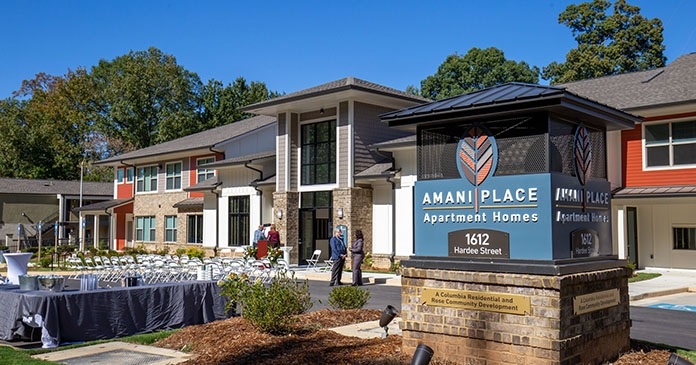Affordable Housing: An Impact Investment, Close to Home
This post originally appeared on Boardwalk Capital Management.
By: Scott Sadler, CFA
February 23, 2020
Investors may not think of affordable housing as an “impact” investment, but without question some opportunities in this sector have measurable environmental and social impacts while also offering the potential for handsome financial returns.
Case in point is a recent acquisition by Jonathan Rose Companies (JRC) in the rapidly-gentrifying Edgewood community of Atlanta, Georgia for their Affordable Housing Preservation Fund V. The fund’s name “preservation” reflects the need to revitalize the existing stock of multifamily housing. It is estimated that the US has a deficit of more than 7 million units of affordable housing. Preserving and expanding what we already have is a good start, but keeping existing housing affordable is not always a developer’s first choice. Preservation of affordable housing is a team effort, with financing provided by portfolio investors and loans from Fannie Mae, the Georgia Department of Community Affairs and tax-exempt bonds issued by Invest Atlanta.
Jonathan Rose is often a preferred buyer of affordable properties given their decades long history of being a responsible operator and a pioneer in urban revitalization. Management of their $18 million renovation and expansion in Edgewood showed particular attention to tenant needs, providing affected tenants with alternate accommodations and even buses to shuttle their children to their existing schools to avoid disruption during the renovation. Despite gentrification that has seen home prices in the area triple over the past five years, 100 percent of units in the development will remain affordable.
JRC proudly reports the environmental impact that they make when acquiring a new neighborhood. Typically, the firm can implement upgrades that cut energy consumption by 20% and water use by a similar amount. And in fact, the company’s acquisition of Edgewood Court (now named Amani Place) has achieved both environmental certification under Enterprise Green Communities, and for health and well being measures, as the first complex in the Southeast certified under Fitwel. The firm’s dedication to making a social impact is well documented. Nearly all of their neighborhoods have areas that are dedicated to community gardens, after school programs, computer labs or medical screening rooms.
From a financial standpoint, environmental upgrades reduce costs, while the social programs often result in a more stable tenant base, reducing the expense of on-boarding new renters. As with almost every real estate investment, investors can expect strong cash flows each year. Affordable housing adds an additional measure of stability, with a large portion of rental income coming from government subsidies. Historically, real estate has appreciated at a pace above the rate of inflation with the potential of higher valuations when properties improve their profitability.
For the impact investor, this unique combination of environmental and social impact, operating stability and attractive projected returns is an attractive mix that is hard to ignore. Contact us for more information on how to incorporate sustainable and impact investments into your retirement plan or investment portfolio.

